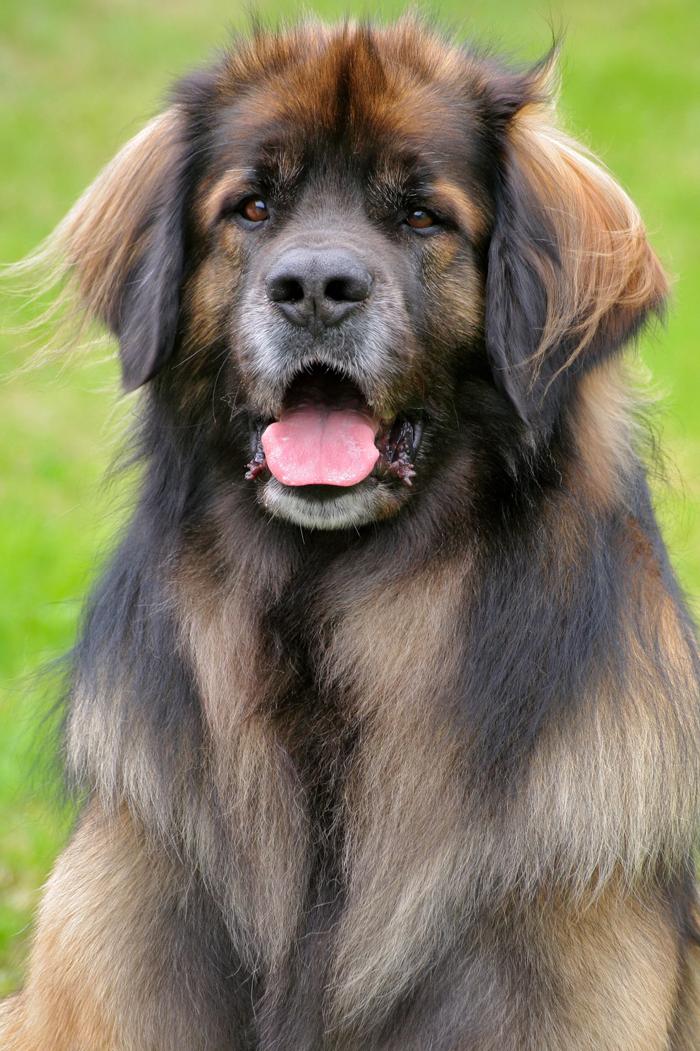- Breed Category: Working Group
- Country of Origin: Germany
- Average Height: Males 72-80 cm, Females 65-75 cm
- Average Weight: Males 48-75 kg, Females 41-59 kg
- Average Life Span: 8-10 years
- Grooming Requirements: Regular brushing, moderate maintenance
- Exercise Requirements: High, needs daily exercise
- Coat Type: Long, water-resistant double coat
- Coat Color Variations: Lion-yellow, red, reddish-brown
- Shedding Level: Moderate to high
- Ear Type: Pendant, medium-sized
- Tail Type: Long, bushy
- Temperament: Gentle, friendly, loyal
- Intelligence Level: High
- Barking Tendency: Low to moderate
- Compatibility with Children: Excellent, very child-friendly
- Compatibility with Other Pets: Generally good with other pets
- Training Ease: Moderate, requires consistent training
- Common Health Issues: Hip dysplasia, heart problems
- Dietary Needs: High-quality diet, large breed formula
- Energy Level: High
- Drooling Tendency: Moderate
- Sensitivity to Weather: Tolerates cold, sensitive to heat
- Overall Maintenance Level: Moderate to high
- Original Purpose: Draft and water rescue dog
- Year of Recognition by Kennel Clubs: 1991 by FCI
- Apartment Friendly: Not ideal, needs space
- Best Suited For: Active families, large homes
- Cost of Ownership: Moderate to high
- Unique Traits: Lion-like appearance, webbed feet
Ever found yourself overwhelmed by the sheer number of dog breeds out there? It’s like trying to pick a favourite chocolate from a box of assorted treats. Enter the Leonberger, a breed that stands out with its majestic presence and gentle nature. This article is your guide to understanding what makes the Leonberger so special, from its fascinating history to its unique characteristics and care needs.
The Leonberger hails from Germany, where it was originally bred in the 19th century. The aim was to create a dog that resembled a lion, and they certainly succeeded. With a lineage that includes Saint Bernards and Newfoundlands, the Leonberger was designed to be both a working dog and a companion, embodying strength and loyalty.
Early Development and Historical Significance
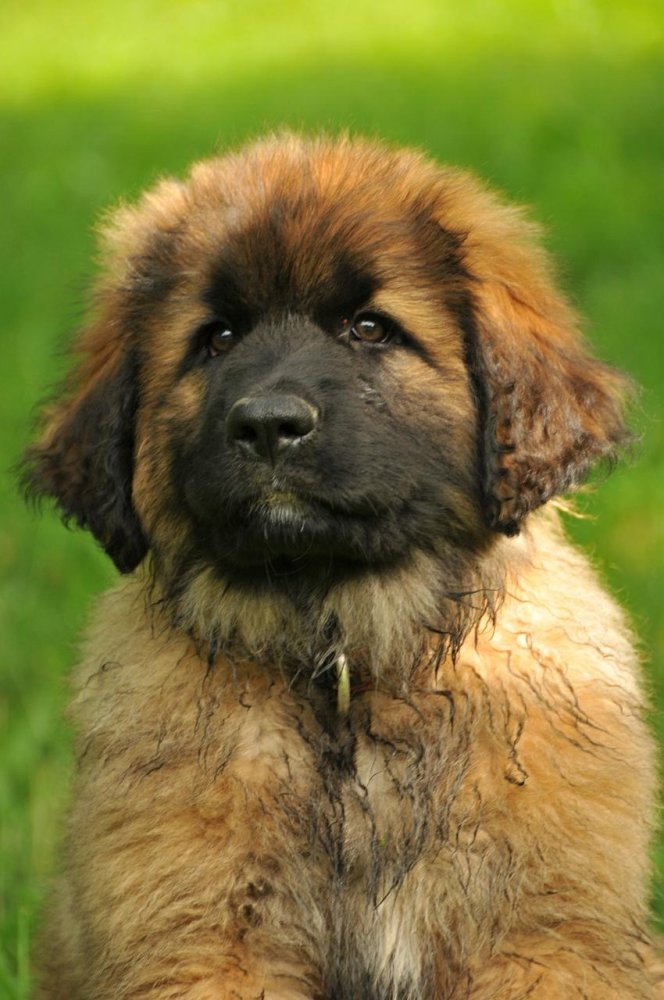
Role in European History
The Leonberger’s journey began in the 19th century, a time when European nobility sought dogs that were not only functional but also symbolised prestige. This breed quickly became a favourite among the elite, gracing the courts of European royalty. Its regal appearance and gentle temperament made it a symbol of status and companionship.
Key Historical Figures
Heinrich Essig, a German politician and entrepreneur, played a pivotal role in the creation of the Leonberger. His vision was to develop a breed that combined the best traits of the Saint Bernard, Newfoundland, and Great Pyrenees. Essig’s dedication and selective breeding efforts resulted in the majestic Leonberger we know today.
Physical Characteristics
Leonbergers are known for their impressive size and striking appearance. They boast a thick, water-resistant double coat, often in shades of lion-like gold and brown. Their expressive eyes and black mask give them a noble look, while their muscular build and strong legs hint at their working dog heritage. Despite their size, they move with grace and agility, embodying both power and elegance.
Appearance and Unique Traits
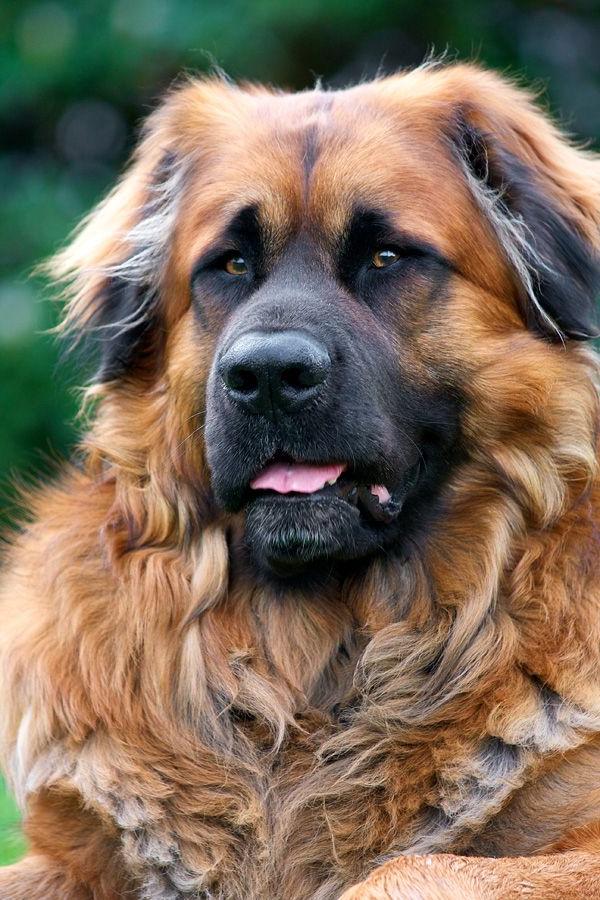
Size and Coat Colour
The Leonberger is a giant among dogs, with males often weighing between 45 to 77 kilograms and females slightly less. Their size is matched by a luxurious double coat, which is water-resistant and comes in shades of lion-like gold, red, and brown. This coat is not just for show; it’s practical, offering protection against the elements.
Distinctive Markings
One of the most striking features of the Leonberger is its black mask, which contrasts beautifully with its lighter coat. This, combined with their expressive, soulful eyes, gives them a noble and dignified appearance. Their bushy tail and feathered legs add to their majestic look.
Unique Physical Traits
Leonbergers are often noted for their lion-like mane, especially prominent in males. This mane, along with their strong, muscular build, hints at their heritage as working dogs. Despite their size, they move with surprising grace and agility.
Temperament and Behaviour
Known for their gentle and friendly nature, Leonbergers are excellent family dogs. They are patient and good-natured, making them great companions for children. Their loyalty and protective instincts are balanced by a calm and even temperament, making them both reliable and loving pets.
Personality and Suitability

Typical Personality Traits
Leonbergers are known for their gentle and intelligent nature. They are sociable creatures, thriving on interaction with their human families and other animals. Their intelligence makes them quick learners, and their gentle disposition ensures they are approachable and friendly.
Suitability as a Family Pet and Working Dog
These dogs are versatile, making them suitable both as family pets and working dogs. Their size and strength are complemented by a calm temperament, making them reliable companions. They are protective yet not aggressive, which is ideal for families looking for a loyal guardian.
Interaction with Children and Other Animals
Leonbergers are particularly good with children, displaying patience and a playful spirit. They tend to get along well with other animals, thanks to their sociable nature. This makes them a great addition to multi-pet households.
Training and Exercise Needs
Training a Leonberger is generally straightforward due to their intelligence and eagerness to please. Consistent, positive reinforcement works best. They require regular exercise to keep them healthy and happy, so daily walks and playtime are essential.
Training, Exercise, and Health
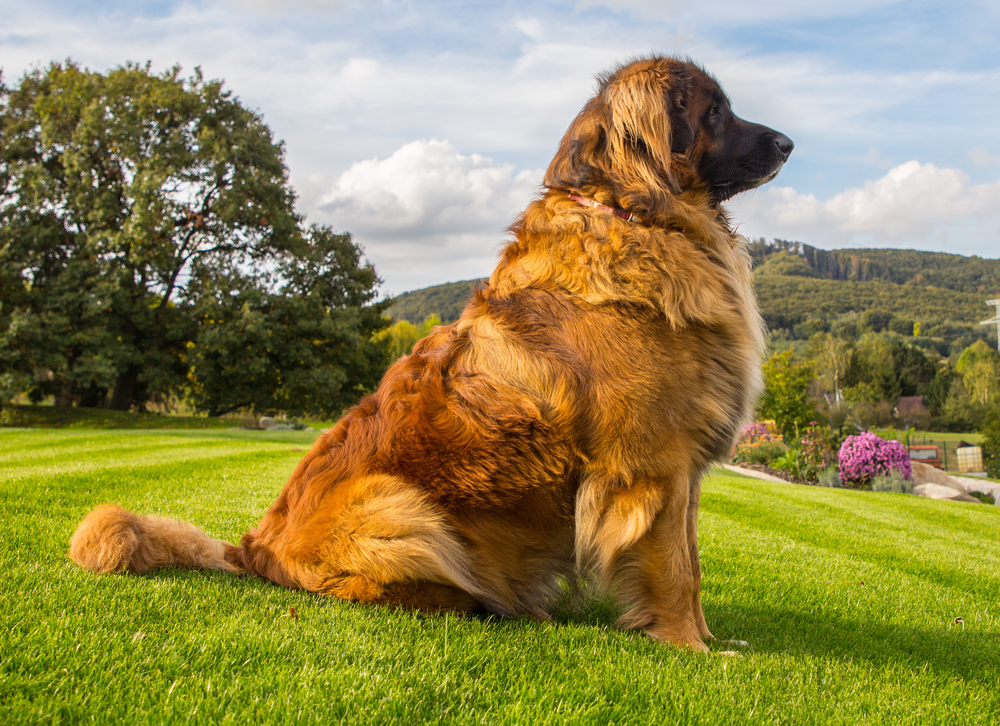
Importance of Early Training and Socialisation
Getting a head start on training and socialisation is crucial for Leonbergers. These gentle giants benefit from early exposure to different environments, people, and other animals. It helps them grow into well-rounded adults, reducing the risk of behavioural issues down the line.
Recommended Training Techniques
Leonbergers respond well to positive reinforcement techniques. Think treats, praise, and playtime as rewards. Consistency is key, so keep training sessions regular but short to maintain their interest. They’re eager to please, which makes them quick learners.
Daily Exercise Requirements and Activities They Enjoy
These dogs need a good amount of daily exercise to stay fit and happy. A couple of long walks, combined with some playtime, usually does the trick. They love activities like swimming and hiking, which tap into their working dog roots.
Health and Lifespan
Leonbergers are generally healthy but can be prone to certain conditions like hip dysplasia. Regular vet check-ups are a must. With proper care, they typically enjoy a lifespan of around 8 to 10 years, offering plenty of time for companionship and adventure.
Health and Care
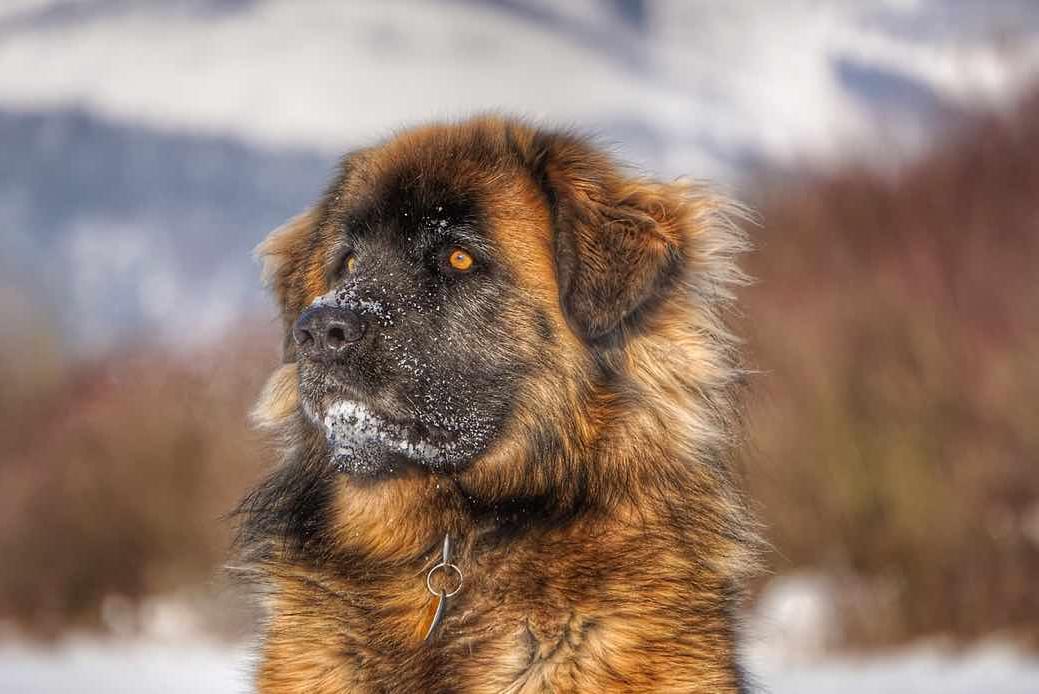
Common Health Issues
Leonbergers, like many large breeds, can face health challenges. Hip and elbow dysplasia are common, as are heart conditions like dilated cardiomyopathy. Regular vet visits are crucial to catch any issues early. Keeping an eye on their weight can also help prevent joint problems.
Average Lifespan and Health Tips
With the right care, Leonbergers typically live between 8 to 10 years. To maximise their lifespan, ensure they have a balanced diet, regular exercise, and mental stimulation. These gentle giants thrive on companionship, so plenty of social interaction is key.
Preventative Care Recommendations
Routine check-ups, vaccinations, and dental care are essential. Regular grooming helps keep their coat healthy and can prevent skin issues. Consider joint supplements if recommended by your vet, especially as they age.
Grooming and Maintenance
Leonbergers have a thick double coat that requires regular brushing to prevent matting and reduce shedding. A good brush a few times a week should do the trick. During shedding season, daily grooming might be necessary. Regular nail trims and ear checks are also important to keep them comfortable and healthy.
Coat Care and Grooming Routines

Shedding and Seasonal Grooming Tips
Leonbergers have a luxurious double coat that requires regular attention. During shedding seasons, typically in spring and autumn, you’ll notice an increase in hair loss. Daily brushing during these times helps manage the shedding and keeps your home a bit less hairy. Outside of these periods, a good brush a few times a week should suffice. This not only keeps their coat looking its best but also helps prevent matting and tangles.
Diet and Nutrition
Feeding your Leonberger a balanced diet is crucial for their overall health and well-being. These large dogs need a diet rich in high-quality proteins and healthy fats to support their muscular build and energy levels. It’s important to monitor their weight, as obesity can lead to joint issues. Consider consulting with your vet to tailor a diet plan that meets their specific needs, taking into account their age, activity level, and any health concerns.
Nutritional Needs and Feeding Guidelines

Foods to Include and Avoid
For optimal health, Leonbergers thrive on a diet rich in high-quality proteins, healthy fats, and essential vitamins. Lean meats, fish, and whole grains are excellent choices. Avoid foods high in fillers, artificial additives, and excessive carbohydrates, as these can lead to weight gain and health issues.
Feeding Schedules and Portion Recommendations
Establishing a consistent feeding schedule is key. Adult Leonbergers typically do well with two meals a day, while puppies may require three to four smaller meals. Portion sizes should be adjusted based on their age, weight, and activity level. Always consult your vet for personalised advice.
Fun Facts and Trivia
Did you know Leonbergers were once used as rescue dogs in water? Their webbed feet make them excellent swimmers. Also, their lion-like appearance isn’t just for show; it was intentionally bred to resemble the lion on the coat of arms of Leonberg, Germany.
Interesting Tidbits and Famous Leonbergers

Interesting Tidbits about the Breed
Leonbergers are not just pretty faces; they have some fascinating traits. For instance, their webbed feet make them natural swimmers, a feature that has historically made them excellent water rescue dogs. Their lion-like mane isn’t just for aesthetics either; it was bred to mimic the lion on the coat of arms of Leonberg, Germany. This breed is also known for its impressive strength and endurance, making them ideal for various working roles, from cart pulling to search and rescue missions.
Famous Leonbergers in Media or History
Leonbergers have made their mark in both history and media. One notable Leonberger was Sultan, who belonged to the Prince of Wales in the late 19th century. This royal connection only added to the breed’s prestige. In more recent times, Leonbergers have appeared in films and TV shows, often cast for their majestic appearance and gentle demeanour. Their unique look and calm nature make them a favourite choice for roles requiring a large, friendly dog.
Final Thoughts
The Leonberger is a majestic blend of strength and gentleness. This breed’s noble appearance and loyal nature make it a cherished companion for families and working roles alike. While they require commitment in terms of grooming and exercise, the rewards of their companionship are immense. Embracing a Leonberger means welcoming a gentle giant into your life, one that offers unwavering loyalty and joy. Consider this breed if you’re ready for a devoted friend who thrives on love and activity.
